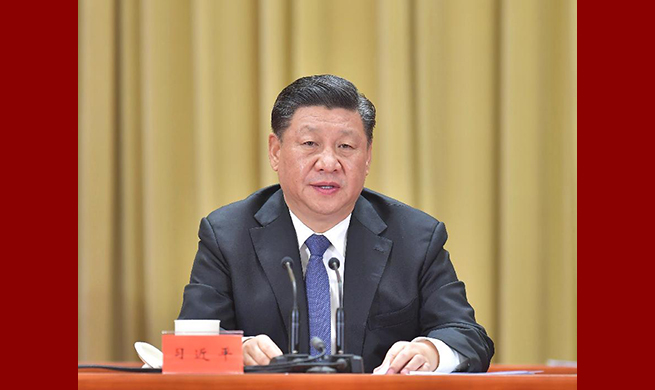by Tichaona Chifamba
HARARE, Jan. 3 (Xinhua) -- A decision by the country's biggest beverage manufacturer Delta Corporation to charge its products in U.S. dollars with effect from Friday has riled many consumers who have expressed shock at the move and implored the government to intervene.
Delta manufactures most of the local beers and soft drinks.
It announced Wednesday that it would start selling its products in foreign currency on Friday, causing panic among consumers and retailers.
Some consumers immediately started hoarding their favorite drinks while retailers scaled down on sales, unsure whether the company would be allowed to proceed to sell in hard currency.
Delta said in a statement that its business had been adversely affected by shortages of foreign currency, which had resulted in the company failing to meet orders, and "in the case of soft drinks, being out of stock for prolonged periods."
It said the fiscal and monetary policy frameworks announced by the government in October 2018 did not provide for "easy access to foreign currency by non-exporters."
"The company has only received limited foreign currency allocations from the banking channels, which have not been adequate to fund the import requirements," said the statement.
It said as a result, all its foreign suppliers were unable to continue providing credit or meeting new orders as some of them had not been paid for extended periods.
"In order to sustain its operations, the company advises the retail and wholesale customers that its products will be charged in hard currency with effect from Friday 4th January 2019," the statement said.
However, the government warned the company that the intended move would be illegal.
Industry and Commerce Minister Mangaliso Ndlovu said Wednesday that business must "stop forthwith" dollarizing the economy.
"We have noted with concern a proliferation in the number of companies and businesses engaging in preferential currency practices. This is not only against the spirit of fairness, but it is also an illegal practice. Government is very clear that this practice is unacceptable and has to stop forthwith and if not, the law will take its course," said the minister.
Ndlovu said the government had tried to ensure businesses operate in a free atmosphere, but companies were now acting in bad faith.
"The government has supported business to operate liberally within the economy without interference but giving an intervening hand whenever it has been called upon to assist. In return, government has expectations that business will operate in good faith and responsibly," he said.
Delta has not been spared from severe foreign currency shortages affecting the country.
It requires 2 million U.S. dollars per month to buy raw materials such as concentrates and granules used to manufacture plastic bottles.
Delta said it had invested over 600 million dollars in plant and equipment, vehicles and ancillary services since 2009, and there was need to protect this investment and ensure sustenance of all value chain partners.
Chairperson of the department of economics at the University of Zimbabwe Albert Makochekanwa said it was incomprehensible that Delta wanted to sell in foreign currency when almost all employees' salaries were in bond notes and RTGS (bank transfers).
"Charging in USD will likely mean reduced customers, which may affect their sales (and) there maybe upward demand for USD, which will cause an upward increase in (the) buying (of) USD on black market," he told the Herald newspaper.
Economist and Zimbabwe National Chamber of Commerce chief executive officer Takunda Mugaga, said the move by Delta indicated the economy was "redollarizing faster than we can catch up," which would have an impact on pensions.
"Delta, being a market leader as well as industry on its own due to the monopolistic nature of its being, the result is expedited redollarization which will have enterprise-wide impact from the farm to the salary of an employee directly and indirectly employed by Delta," said Mugaga.
He said smaller beverage manufacturers would follow suit.
Mugaga warned, however, that if the government blocked Delta from charging in foreign currency, this could lead to job losses, arguing the company could no longer afford to continue looking for hard currency outside the formal means.
Harare resident Tafadzwa Musariri said the move by Delta would impact heavily on many people.
"Beer is a favorite pastime for many people. They now want us to pay for it in foreign currency which is not available. Where will we get it, even at a premium?"













